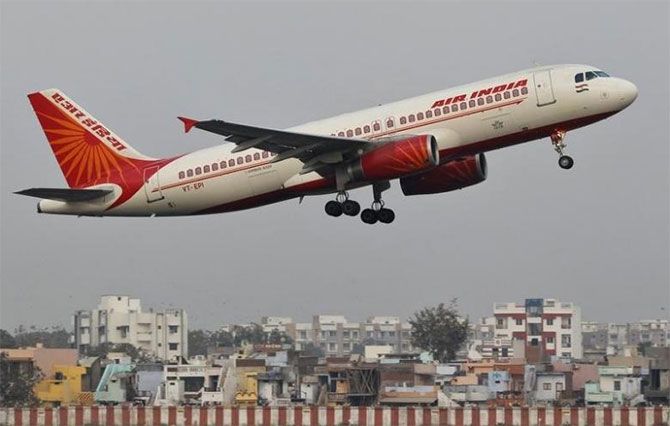Probable reasons that led to failure of the sale process include 24 per cent government stake and corresponding rights, high debt, volatile crude oil prices, fluctuations in exchange rate, changes in macro environment, profitability track record of bidders and restriction on bidding by individuals.

The finance ministry is preparing a fresh proposal for sale of Air India, incorporating issues like crude oil prices and exchange rate volatility, flagged by EY last year on possible reasons of the government failing to attract bidders for the national carrier.
The ministry's proposal, to be placed before Air India Specific Alternative Mechanism (AISAM), will also include option of selling either 100 per cent or 76 per cent government stake in Air India.
The AISAM, which is basically a Group of Ministers, have to be reconstituted as Arun Jaitley and Suresh Prabhu are no longer ministers in the new government.
They will be replaced by Finance Minister Nirmala Sitharaman and Civil Aviation Minister Hardeep Singh Puri.
Transport Minister Nitin Gadkari is likely to continue in the panel when it is reconstituted.
The government last year invited bids to sell 76 per cent stake in Air India, along with transfer of management control.
However, it did not attract any bidder.
Following that transaction advisor EY prepared a report citing probable reasons that led to failure of the sale process.
The reasons cited include 24 per cent government stake and corresponding rights, high debt, volatile crude oil prices, fluctuations in exchange rate, changes in macro environment, profitability track record of bidders and restriction on bidding by individuals.
An official said that the EY report was discussed at the AISAM meeting in June last year following which it was decided that the Air India sale should be deferred.
During the meeting, which was presided over by the then Finance Minister Arun Jaitley, it was also decided to infuse more funds into the carrier and take steps to lower debt of Air India by selling its subsidiaries and non-core assets.
"We will present a fresh proposal for Air India sale to AISAM. It would include updates on the issues raised when Air India disinvestment failed last year. It would be left to the AISAM to decide whether the government should go in for 100 per cent or 76 per cent stake sale," an official told PTI.
The government has already asked Air India to finalise its accounts for 2018-19 by June 30.
Once the updated accounts are available and AISAM gives a go-ahead for Air India sale, the Department of Investment and Public Asset Management (DIPAM) and Ministry of Civil Aviation will draft the Preliminary Information Memorandum (PIM) giving details of about the company and stipulating conditions for eligibility of bidders.
In 2018, AISAM had earlier decided to sale 76 per cent in Air India and the buyer was required to take over Rs 24,000 crore debt of the carrier along with over Rs 8,000 crore of liabilities.
However, the stake sale failed to attract any bidder when the auction process completed on May 31, 2018.
At that time, Air India's total debt burden stood at Rs 55,000 crore.
As precursor to the strategic disinvestment of Air India, the Cabinet in February approved setting up of a special purpose vehicle (SPV) - Air India Assets Holding Company - to transfer Rs 29,464 crore worth loans of the national carrier and its four subsidiaries.
The official said that the process of transfer of Rs 29,464 crore to the SPV is not yet complete.
"The Department of Economic Affairs, Civil Aviation Ministry and the banks are still working out the modalities of debt transfer. The process is likely to take some time," the official added.
Photograph: Reuters










 © 2025
© 2025